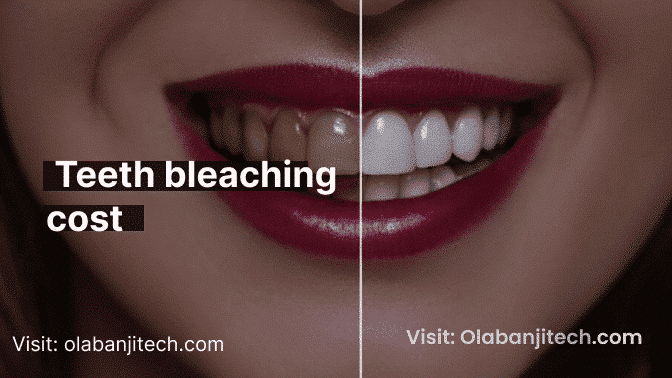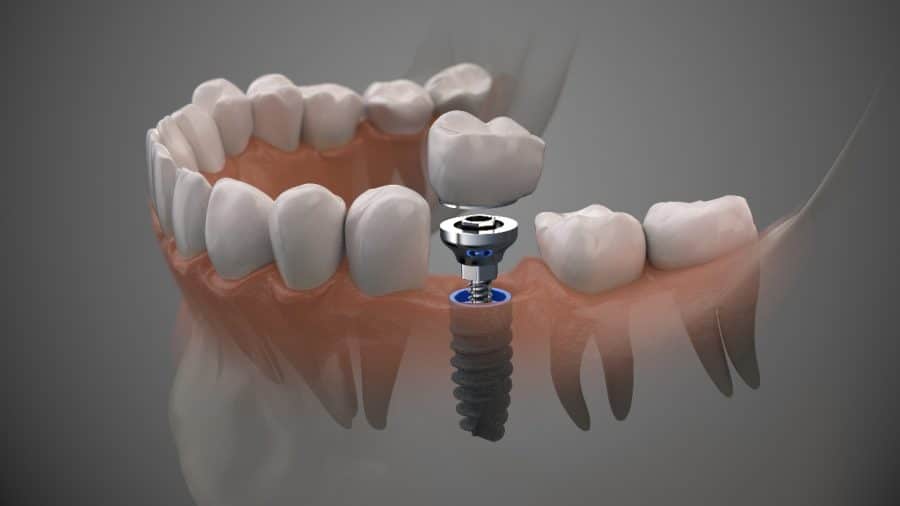Teeth bleaching is a cosmetic dental procedure that involves lightening the color of your teeth. This procedure can be performed in a dental office or at home using over-the-counter products. Teeth bleaching can be used to treat a variety of conditions, including discoloration caused by aging, drinking coffee, tea, or wine, or taking certain medications.
- Types of Teeth Bleaching
- Factors that Affect the Cost of Teeth Bleaching
- Average Cost of Different Teeth Bleaching Treatments
- Cost Comparison between In-Office and At-Home Treatments
- Insurance Coverage for Teeth Bleaching
- Alternatives to Professional Teeth Bleaching
- Maintenance and Aftercare for Teeth Bleaching
- Conclusion and Final Thoughts
Types of Teeth Bleaching
There are two main types of teeth bleaching: over-the-counter products and in-office treatments.
- Over-the-counter products include gels, strips, and trays that you can use at home. These products typically contain a lower concentration of bleaching agents than in-office treatments and can take several weeks or months to produce noticeable results.
- In-office treatments, on the other hand, are performed by a dental professional and use a higher concentration of bleaching agents. These treatments can provide faster and more dramatic results, but they are also more expensive.
Factors that Affect the Cost of Teeth Bleaching
The cost of teeth bleaching can vary greatly depending on several factors, including:
- Type of Bleaching Method: The cost of teeth bleaching will depend on the type of bleaching method you choose. Over-the-counter products are typically less expensive than in-office treatments, but the results may not be as dramatic.
- Location: The cost of teeth bleaching can also vary depending on where you live. In larger cities, the cost of dental services is generally higher than in smaller towns.
- Dentist’s Experience and Reputation: The cost of teeth bleaching can also be affected by the experience and reputation of your dentist. Dentists with more experience and a good reputation may charge more for their services.
- The extent of discoloration: The cost of teeth bleaching will depend on the extent of discoloration you wish to treat. If you have only mild discoloration, the cost will be lower than if you have severe discoloration.
- The type of bleach used: The cost of teeth bleaching will also depend on the type of bleach used. Some bleaches are more expensive than others and may require additional treatments to achieve the desired results.
- The length of the treatment: The cost of teeth bleaching will also depend on the length of the treatment. A single in-office treatment may be more expensive than multiple at-home treatments over a longer period of time. Additionally, some in-office treatments may require multiple visits to achieve the desired results, which can increase the overall cost of the treatment.
Average Cost of Different Teeth Bleaching Treatments
The average cost of over-the-counter teeth bleaching products can range from $20 to $100. The cost of in-office treatments can range from $500 to $1,000 or more.
Cost Comparison between In-Office and At-Home Treatments
While in-office treatments are generally more expensive than over-the-counter products, they can provide faster and more dramatic results. In-office treatments are also typically performed by a dental professional, which can provide a higher level of comfort and safety.
Insurance Coverage for Teeth Bleaching
Teeth bleaching is generally considered a cosmetic procedure and is not covered by most dental insurance plans. However, some insurance plans may cover the cost of teeth bleaching if it is deemed necessary for medical reasons.
Read Also: "The Cost of a Brighter Smile: Understanding Professional Teeth Whitening Expenses"
Alternatives to Professional Teeth Bleaching
If you are looking for an alternative to professional teeth bleaching, there are several options available, including:
- Over-the-counter whitening toothpastes and rinses
- Avoiding foods and drinks that can stain your teeth
- Regular dental cleanings
Maintenance and Aftercare for Teeth Bleaching
To maintain the results of your teeth bleaching, it is important to:
- Brush and floss regularly: Brushing and flossing regularly can help maintain the results of your teeth bleaching and prevent future staining.
- Avoid foods and drinks that can stain your teeth: Foods and drinks that are high in color, such as coffee, tea, red wine, and berries, can stain your teeth and undo the results of your bleaching treatment.
- Use a straw when drinking colored liquids: Using a straw when drinking colored liquids can help minimize the amount of liquid that comes into contact with your teeth and prevent staining.
- Visit your dentist for regular check-ups and cleanings: Regular dental check-ups and cleanings can help maintain the health of your teeth and gums and prevent future staining.
- Use a teeth whitening touch-up product: Some teeth whitening products, such as whitening toothpastes and gels, can be used for touch-up treatments in between professional teeth bleaching treatments.
Conclusion and Final Thoughts
Teeth bleaching can be an effective way to improve the appearance of your smile, but it can be expensive. The cost of teeth bleaching will depend on several factors, including the type of bleaching method you choose, your location, and the experience and reputation of your dentist. In-office treatments are typically more expensive than over-the-counter products, but they can provide faster and more dramatic results.
It is important to keep in mind that teeth bleaching is generally considered a cosmetic procedure and is not covered by most dental insurance plans. If you are on a tight budget, you may want to consider alternative options, such as over-the-counter whitening toothpastes and rinses, avoiding foods and drinks that can stain your teeth, or regular dental cleanings.
Ultimately, the cost of teeth bleaching is a personal decision that should be based on your individual needs and budget. If you are considering teeth bleaching, it is best to talk to your dentist to discuss your options and determine the best course of action for you.
Q1. What is teeth bleaching?
A1. Teeth bleaching is a cosmetic dental treatment that uses a special solution to remove stains and discoloration from the teeth, resulting in a brighter, whiter smile.
Q2. How much is teeth bleaching cost?
A2. The cost of teeth bleaching can vary depending on the type of treatment and the location of the dental office, but on average, it can cost between $500 to $1,000.
Q3. How long does teeth bleaching last?
A3. The length of time teeth bleaching lasts can vary depending on the individual and their habits, such as smoking or drinking coffee, but it can typically last several months to a year with proper maintenance.
Q4. Is teeth bleaching safe?
A4. Teeth bleaching is generally considered safe when performed by a dental professional. However, it may cause temporary tooth sensitivity or gum irritation in some individuals.
Q5. How can I maintain my teeth after bleaching?
A5. To maintain the results of teeth bleaching, it's important to practice good oral hygiene, avoid foods and drinks that can stain the teeth, and schedule regular dental cleanings and checkups.
My name is Wisdom Bassey, I’m a blog content writer and graphic designer who provides support and services for brands and different companies. I’m young and versatile, A tech enthusiast. I carry out deep research on every topic I choose to write about. You can reach me through my social media handles, I’m always available and ready to connect.
The content is intended to augment, not replace, information provided by your clinician. It is not intended nor implied to be a substitute for professional medical advice. Reading this information does not create or replace a doctor-patient relationship or consultation. If required, please contact your doctor or other health care provider to assist you to interpret any of this information, or in applying the information to your individual needs.




